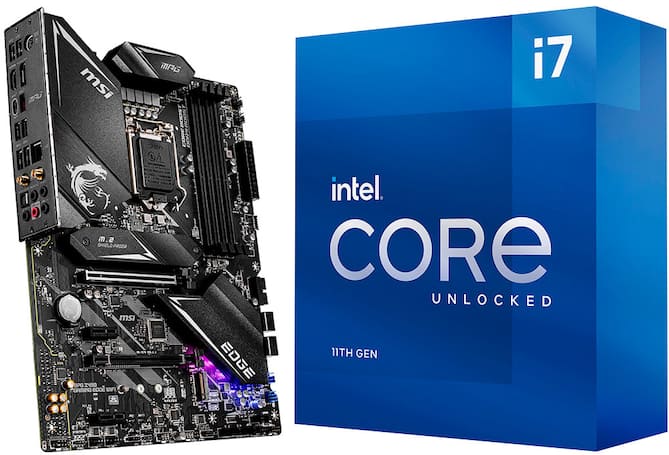How to Choose a Computer Motherboard

carousel
Understanding motherboard basics.
A motherboard is a crucial component of a computer that connects all the other hardware components together. It acts as a central hub, allowing communication between the processor, memory, storage devices and other peripherals.
Choosing the right motherboard is essential as it directly impacts the overall performance and compatibility of your computer. The motherboard determines which processor to choose, how much memory you’ll need and which expansion cards you can use.
When selecting a motherboard, there are several factors to consider:
- Form factor. The form factor of a motherboard determines its size and shape, which should match the computer case. Common form factors include ATX, microATX and Mini-ITX.
- Socket type. The socket type determines the compatibility of the motherboard with a specific processor. Ensure that the motherboard supports the socket type of your chosen processor.
- Memory slots. Consider the number and type of memory slots on the motherboard, as it determines the maximum amount and type of RAM you can install.
- Expansion slots. Check the number and type of expansion slots available for graphics cards, sound cards, and other peripheral cards you may need.
- Connectivity. Look for the availability of USB ports, audio jacks, Ethernet ports and other connectors that meet your requirements.
- Basic Input/Output System (BIOS). The motherboard's BIOS controls various settings and configurations. Ensure that it provides the necessary features and options.
By understanding these motherboard basics and considering these factors, you can make an informed decision when choosing a motherboard that suits your needs and ensures compatibility with your desired computer setup.
Motherboard compatibility.
Determining CPU socket compatibility.
Significance of memory slots.
Importance of expansion slots.
Understanding form factor.
The form factor of a motherboard refers to its physical size and layout. Common form factors include ATX, Micro-ATX and Mini-ITX. It's crucial to choose a motherboard that matches the form factor of your computer case. Ensure that the screw holes line up properly and all the connectors are easily accessible.
By considering these factors, you can ensure that your chosen motherboard is compatible with your desired CPU, memory, expansion cards and computer case. This compatibility will contribute to the overall performance and functionality of your computer system.
Storage and connectivity options.
When choosing a computer motherboard, it is important to consider the storage and connectivity options it offers. These factors play a crucial role in determining the overall performance and functionality of your computer.
One of the key considerations for storage options is the type of storage interface supported by the motherboard. The most common options include SATA, M.2 and NVMe. SATA is the traditional interface for connecting hard drives and SSDs, while M.2 and NVMe offer faster transfer speeds and are ideal for high-performance storage devices.
In addition to storage options, it is essential to look for the right connectivity ports on your motherboard. USB ports are a necessity for connecting peripherals such as keyboards, mice and external storage devices. Other important ports include HDMI or DisplayPort for connecting monitors, Ethernet for internet connectivity and audio jacks for speakers or headphones.
Power delivery is another crucial aspect to consider when choosing a motherboard. The power delivery system determines how efficiently power is supplied to the CPU and other components. A robust power delivery system ensures stable performance, especially when using power-hungry processors or overclocking.
Lastly, build quality plays a significant role in the performance and durability of your motherboard. Look for motherboards with high-quality components, such as solid capacitors and premium chokes. A well-built motherboard can provide better stability, lower temperatures and improved longevity.
Additional features and considerations.
When choosing a computer motherboard, there are several additional features and considerations to keep in mind to ensure you make the right decision for your specific computer setup.
Budget-friendly motherboard options are one consideration to make. If you're on a budget, there are plenty of affordable motherboard options available. While they may not have all the bells and whistles of higher-end models, they can still provide a solid foundation for your computer. Consider your specific needs and prioritize the features that are most important to you.
The BIOS (Basic Input/Output System) is also a crucial component of the motherboard, as it controls the hardware and software interaction. If you're interested in overclocking your system for better performance, make sure the motherboard supports this feature. Look for motherboards with robust BIOS options and good overclocking capabilities.
By taking the time to weigh out these additional features and factors, you can choose a computer motherboard that meets your requirements and ensures optimal performance for your system.